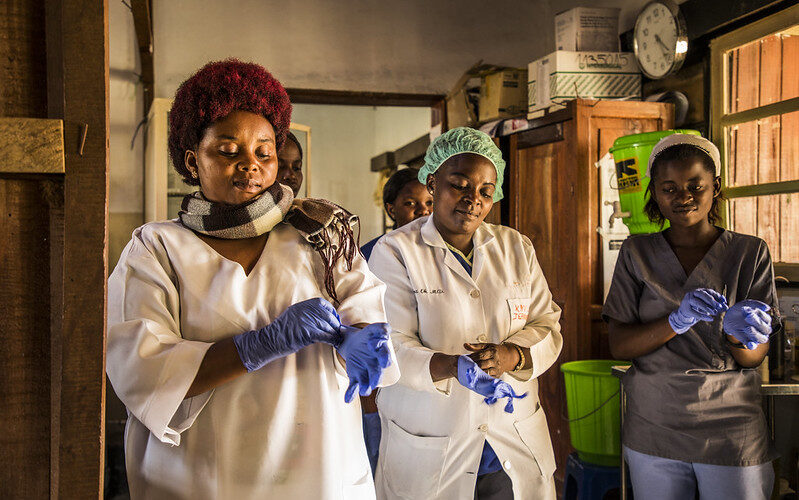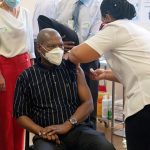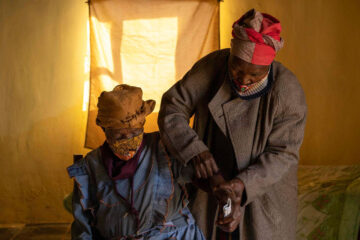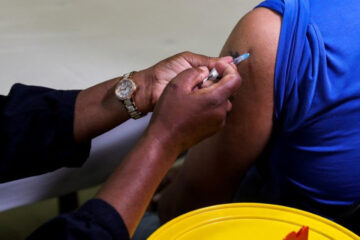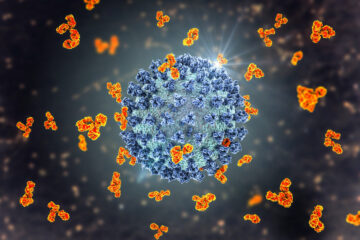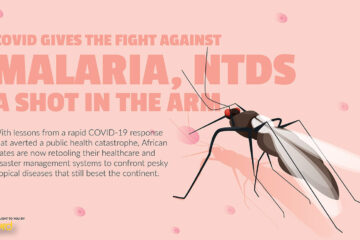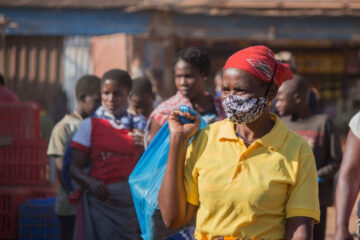WOMEN have made most coronavirus-related claims for compensation while just under 5 000 healthcare workers have tested positive for Covid-19.
Infected healthcare workers
As of 30 June 2020, about 4 821 healthcare workers in both the private and public sector tested positive for Covid-19, said health minister Zweli Mkhize.
Mkhize updated Parliament on 8 July, revealing nurses have the highest infection rate with 2 473 cases. Doctors account for 377, while community health workers and other health professionals recorded 1 971 positive cases. Mkhize said the majority of infected healthcare workers are from the Western Cape province.
“Several interventions have been put in place to address infections among healthcare workers. Guidelines to support all health workers across the continuum of care were developed,” Mkhize said.
Municipal workers’ salary increase may be frozen
Municipal workers might not get their agreed cost-of-living increase at the end of this month after the South African Local Government Association (Salga) released a circular announcing a “Covid-19 induced salary and wage agreement review”. Salga said it wanted a “total freeze” of the wage increase, or else for workers to get 3.25% now and the other 3% next year. The 6.25% increase was settled in a three-year agreement three years ago. Kurt Ziervogel, general secretary of the Municipal and Allied Trade Union of South Africa (Matusa) says his union “rejects any notion of no increase”.
“Workers must rightfully get the measly 6.25%. It does not even begin to cover the food prices and transport costs that have increased since lockdown began,” he said. Senior managers and directors have already received their performance bonuses and councillors gave themselves an increase, said Ziervogel.
The Swartland Municipality in Western Cape has said it will follow Salga’s instruction and apply to be exempted from paying the “morally unconscionable” increase. “How does it become unconscionable for an ordinary, low-paid general worker who is on the frontline of service delivery to get a cost-of-living increase but not a highly paid director, senior manager or councillor?” asked Ziervogel.
An estimated 63 municipal workers have died of the novel coronavirus and over 4 500 are infected. Matusa believes that since municipalities have already increased their service charges, there is no reason for them not to pay the workers’ increases, especially as “the same workers will have to pay the increased service charges”, Ziervogel said.
The South African Municipal Workers Union (Samwu) said it did not know of any municipalities who had applied not to pay the increase. Samwu also opposed freezing of the pay increase and said it would discuss the matter further at its National Executive Committee meeting.
Alternative ways of healing
Minister of Higher Education Blade Nzimande is looking into how indigenous knowledge of medicine can be used to fight Covid-19: “We are in the process of implementing multiple interventions including the use of African medicines as immune-modulators and anti-coronavirus therapeutics.”
One of the herbs being considered is African wormwood or umhlonyana. “[The] African Medicines Platform held a meeting with [the] World Health Organization African regional office to review the role of African medicines against Covid-19 and to discuss ways in which South Africa can work with [the African regional office] in ensuring that recognised research protocols are observed,” said Nzimande during a media briefing on 8 July.
Women top list of compensation applicants
Women seem most vulnerable to contracting Covid-19 at work, according to the Department of Employment and Labour. Minister Thulas Nxesi recently said in a statement that more than 80% of the Compensation Fund applications the department has received so far involve women. This is a consistent trend in all provinces.
“The Compensation Fund has received a total of 941 claims to date with the highest number coming from the Western Cape that has recorded 657 claims. Of that total, 533 are women. The fund has accepted liability for 356, repudiated 69 and 233 are pending adjudication.
“In the Eastern Cape, 99 claimants are women out of a total of 127 claims received. The fund has accepted liability for 26 while three have been repudiated and 98 await adjudication,” said Nxesi.
KwaZulu-Natal has 98 claims – 92 coming from women – of which 67 have been accepted, five repudiated and 26 await adjudication.
To date, Nxesi said the fund has paid R202 172.35 in medical costs.
Joburg’s Covid-19 funding woes
With Covid-19 approaching its peak in Gauteng, the question of how Johannesburg’s basic services will be funded during the virus’ most devastating period remains unanswered.
Gauteng’s provincial executive has issued a directive to the City of Johannesburg in the wake of its failure to approve an annual budget before the start of the municipal financial year in July. Johannesburg’s council will now meet urgently to approve its 2020/2021 budget by 10 July 2020.
Tito Mboweni, the ‘anti-people minister’
The South African Food Sovereignty Campaign has lambasted Tito Mboweni as “an anti-people minister of finance” whose recent budget puts South Africa “on a trajectory of social collapse”.
Dorah Marema of Women for Climate Justice and a spokesperson for the South African Food Sovereignty Campaign has also called for an urgent meeting with the Solidarity Fund. The fund was set up to provide food and other relief to people affected by Covid-19. Marema says they oppose Minister of Social Development Lindiwe Zulu’s demand for more funds for her department to deliver food parcels.
The government’s food parcels have been widely criticised during the lockdown. The Food Sovereignty Campaign says food relief must be community led, as its research into 220 community-driven food relief efforts, such as soup kitchens and community gardens, have found that these feed about 63 000 people per week.
“These community-led initiatives, and not just high-profile humanitarian NGOs, must be supported. We are also concerned about shifting all food relief support to a voucher system by the Solidarity Fund. There are various issues we would like to discuss, least of all inclusion/exclusion problems with vouchers, costs, urban and rural reach and support for community food sources,” says Marema.
The Food Sovereignty Campaign wants more support targeted at small-scale farmers and wants local food sovereignty hubs to be set up where vegetables can be constantly grown and produced. A thousand of these hubs could support 10 million people, Marema says.
More miners contract Covid-19
There has been a sharp increase in miners testing positive for Covid-19 from the initial 384 cases recorded in May when operations resumed at full capacity at some mines. Fourteen deaths have been reported in the sector, with the North West showing the highest number of infections.
The mining industry employs just over 400 000 people. So far, just over 20 000 workers have been tested. In a number of instances, miners were asymptomatic, increasing the possibility of the virus being spread in mining communities. On 4 July, the Minerals Council of South Africa, which represents just under 400 mines, slammed claims that the mining sector has become an epicentre of the Covid-19 pandemic.
Unions raised the alarm about the industry’s ability to prevent the spread and protect workers in an environment where people are in close proximity when working, making them vulnerable to the virus.
The inspectorate service of the mineral resources department has conducted over 1 500 audits of mines across the country in the past three months. Thirty-seven companies have been found noncompliant, though the auditors stressed that these cases were not exclusive to regulations related to Covid-19. – NEW FRAME

